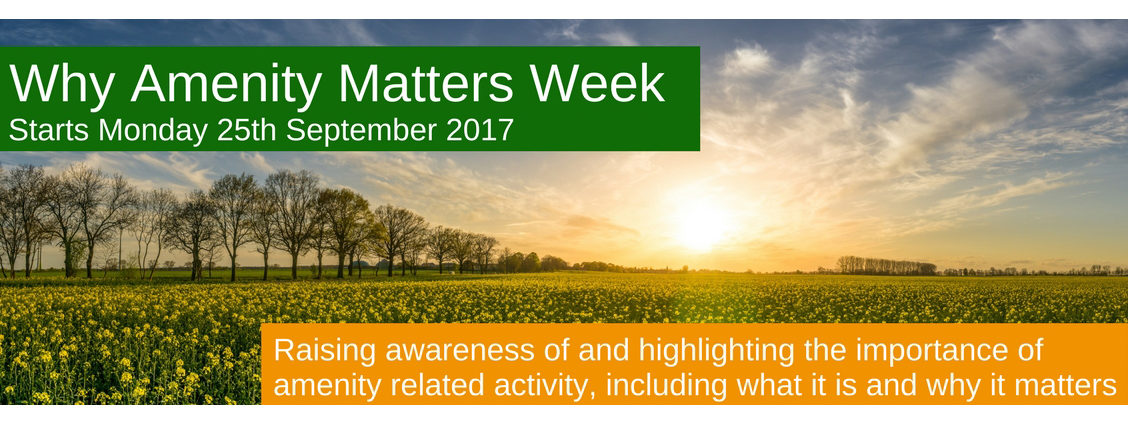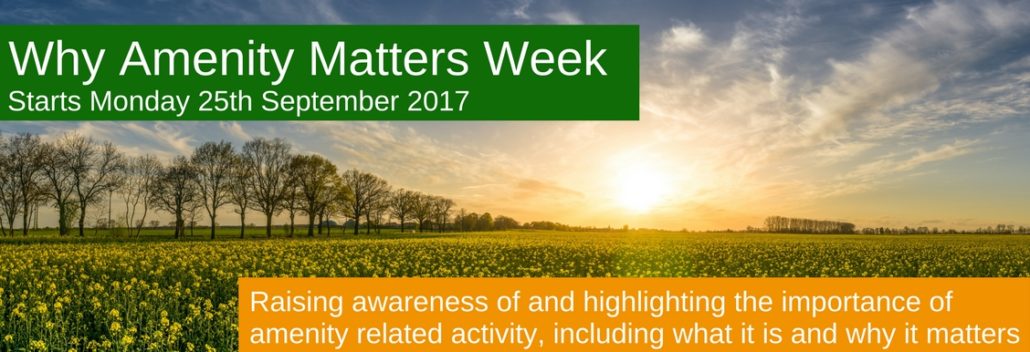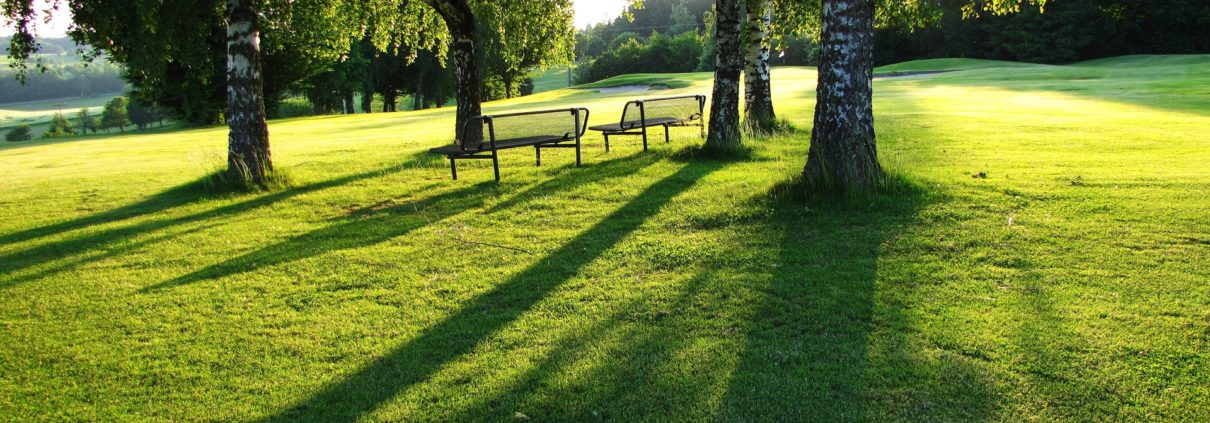This week marks Why Amenity Matters Week
‘Why Amenity Matters Week’ highlights green spaces and champions the ‘heroes’ who maintain the UK’s urban landscape.
This week marks Why Amenity Matters Week. Through the eyes of the Colins family, the campaign encourages families and friends to celebrate the enjoyment of our local parks and sports grounds and recognise the contribution of those who maintain our green spaces and infrastructure.
Launched by the Amenity Forum, Why Amenity Matters Week also aims to show how the UK’s urban spaces, roadside verges, trees, hedges and railway lines are maintained and how the amenity sector, responsible for caring for this managed landscape, impacts on our daily lives; helping us travel to work and enjoy leisure activities while contributing to the economy and protecting the natural environment. The campaign highlights how invasive weeds have a negative impact on the economy estimated at £1.7 billion[i] with £6 million alone being spent on controlling Japanese Knotweed on the road network in the UK.
As well as promoting the importance of the sector, the week also highlights the benefits of enjoying local parks and sports grounds as well as saluting the sector’s ‘unsung green heroes’ who care for them and ensure they are managed safely. The campaign is also designed to raise awareness among commuters of the maintenance work that goes on behind the scenes to keep the country’s railway network, stations and highways clear from weeds.
Key facts include:
- Over 37 million people regularly use parks in the UK (over 57% of the population)[iii]
- There are over 27,000 parks and green spaces across the UK[iv]
- More than 18,000 miles of railway track need to be maintained[v]
- Trains carry 1,650 million passengers a year
- And carry 28,000 million tons freight a year
- Offices or homes neighbouring railways lines are occupied by more than 7 million people
- 2500 railway stations across the UK need to be kept weed free
- Invasive weeds have a negative impact on the economy estimated at £1.7 billion – £6 million is the total cost of controlling Japanese knotweed on the road network in Great Britain
During the week, a social media survey on Twitter is set to quiz those enjoying urban green spaces on who they think manages our amenity areas, who is responsible for keeping streets and verges weed free and who ensures our urban trees stay free of pests and disease.
At the same time, members of the Amenity Forum who range from local greenkeepers to national water companies will lift the lid on what’s involved in looking after their patch.
The Amenity Forum represents the diverse sector behind the maintenance of the managed environment; from manufacturers to suppliers, trade associations, local authorities, major users, landscape, sport and leisure. In the landscaping sector alone, 61,500 people are employed within the UK and the annual turnover for the landscaping services industry is £4 billion.
Independent Chairman of the Amenity Forum Professor John Moverley OBE said: “Most people appreciate that the environment around them is maintained in some way but fewer realise that there is a huge contribution from something called the amenity sector behind this; working to ensure our green spaces and essential infrastructure are managed safely for public enjoyment and leisure. What they do impacts upon every UK citizen every day providing a safe and healthy environment and sports and leisure areas fit for purpose’
“Studies have shown a positive and clear link between mental health and access to parks and green spaces. The Get Moving campaign was creative to help show the importance of effective and safe weed control to the smooth running of things we take for granted, such as clear pathways and roads.
“This year we want to encourage everyone to get back out into their local parks and green spaces and to recognise the contribution of those working in them to enable us to travel, keep physically active and protect the environment.
“Those responsible for weed, pest and disease control may go largely unnoticed but their work is vital in ensuring that our journeys to work, the shops, for recreation, are safe and our environment is protected and that invasive plants like Japanese Knotweed are controlled.
“During Why Amenity Matters Week why not give a thought to the green heroes who are quietly making a big impact on your enjoyment of outdoor space.”
For the latest industry news visit turfnews.co.uk
Get all of the big headlines, pictures, opinions and videos on stories that matter to you.
Follow us on Twitter for fun, fresh and engaging content.
You can also find us on Facebook for more of your must-see news, features, videos and pictures from Turf Matters.












